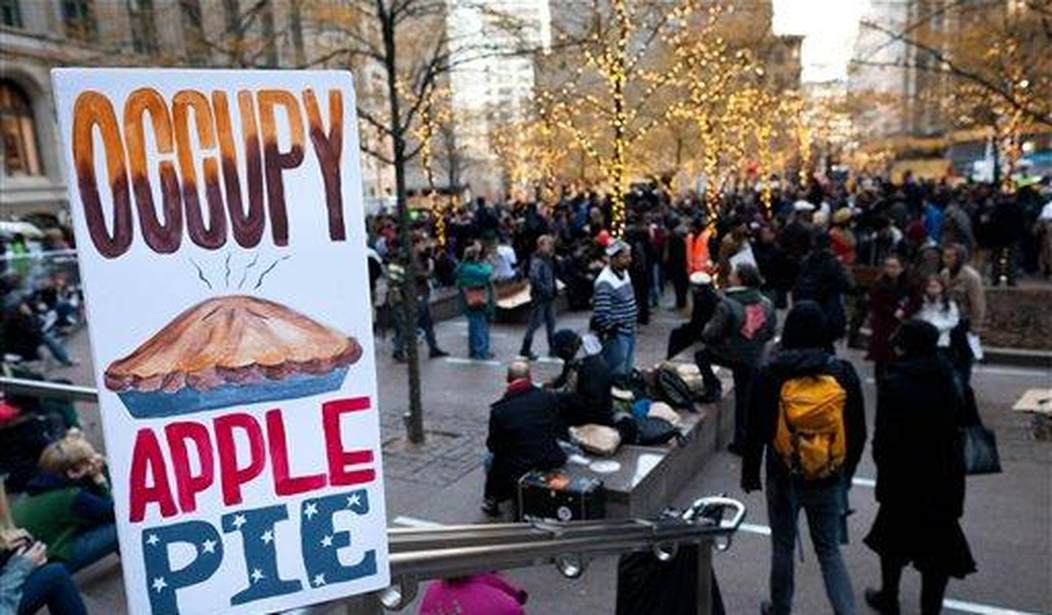If we listen to pundits and elitist media, we’re not supposed to enjoy Thanksgiving. Either we’re too busy seeing it as “An Indigenous Day of Mourning,” or we’re being given explicit instructions on how to act around relatives with whom we disagree politically.
How this “tradition” came about is a mystery. It’s not quite as old as pundits trying to ruin Christmas for us by pointing out how greedy we all are — especially evil corporations that have “commercialized” Christmas. But sometime over the last decade when we all got woke to evil white settlers taking advantage of ignorant native Americans to steal their land, the necessity to become sensitive to indigenous people and stop celebrating Thanksgiving because Native Americans have “nothing to be thankful for” became all pervasive.
Then, there was Trump. And the left’s grievance machine went into full operational mode, teaching Americans how to deal with relatives who — mistakenly and stupidly — admired Donald Trump.
Walter Kirn, writing in Compact, is heartily tired of the pontificating from liberal columnists who think that Americans need to be instructed on how to behave around their politically disagreeable relatives.
Like any other literary genre, the Battleground Thanksgiving articles share certain tropes and themes. They have a ritual villain, for example. It’s typically a cranky older relative hailing from a roughhewn heartland city, who crudely dismays his more enlightened relatives with his blunt views on race or Trump or Covid. In an especially patronizing piece published recently in Forbes, this central-casting jerk is an “Uncle Tim from Topeka.” In a similar Washington Post piece from last week, “chatty grandparents” seem to be the culprits. Notably, the offending party or parties is never the reader of the article, who is presumed—because he is a subscriber—to hold impeccable opinions drawn straight from the pages of the journal in question.
Inevitably, the tenor of these pieces of left-wing agitprop is the “good” side of the family (left-wing) is under a constant barrage of pro-Trump, anti-COVID propaganda from the other (evil) side.
Stick figures would be a more expressive art form than the ludicrous descriptions of the enemy of comity and tranquility at the dinner table represented by the right.
While writing this subtle plea for a return to frank and open bickering, rather than a false Thanksgiving truce, I came upon a CNN piece—“Should You Talk About Politics Over the Holidays?”—that deserves special repudiation. The piece is part slideshow, part interactive quiz and ventures to make a “choose-your-own-adventure” game of feast-day table-talk. It begins with the burning, loaded, leading question (at least for fans of CNN): “Do the people at your holiday dinner have the same opinion of President Trump?” Four answers are offered, each with its own button, and depending on which button you press, further series of questions are asked and answered, leading finally to a proposed solution for your particular social quandary.
That CNN piece refuses to recognize its own banality. If they had asked “Do the people at your holiday dinner have the same opinion of Bernie Sanders?” it might have sparked a really interesting debate. But flinging feces at the Thanksgiving dinner table over Trump not only endangers the turkey, but it would also probably trigger some of the younger snowflakes sitting around the table and force a quick exit to the bedroom for a good cry. If we’re lucky, they won’t return, leaving more dressing for the rest of us (me).
When I ran through this exercise making different choices, I learned that they all resolved in the same way: by suggesting I hold my peace. So what was the point? To gather data, perhaps. As the geo-location cellphone research showed, there seems to be a high degree of interest on the part of institutional powers in how Americans of different stripes assemble, or don’t assemble, in groups and families. To me, it has a monstrous, ominous feel. Since when did holiday dinners become a problem warranting torrents of elite advice, behavioral scrutiny, and close analysis? And why is division—regional, generational, and political—its abiding theme?
Why is it that the most vocal and annoying advice givers about how we’re “supposed” to relate to our loved ones are on the left? My advice is to let everyone go at it. Let the anger out — it prevents ulcers. And eating Aunti Midge’s fruitcake always gives me gas, relieved only by my screaming at my relatives who are Cubs fans.










Join the conversation as a VIP Member